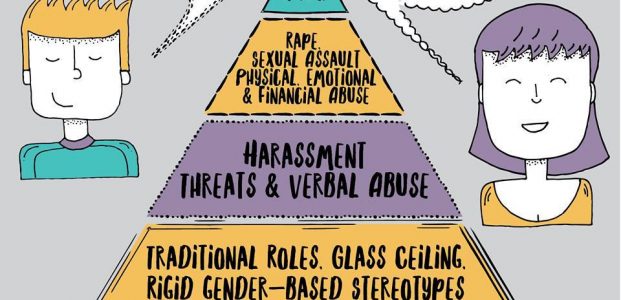Sexual violence is a massive social issue worldwide. We know that 1 in 5 women and 1 in 20 men in Australia will experience sexual assault since the age of 15. The LBGTIQ+ community is reported to experience even higher rates of sexual violence. Furthermore, sexual harassment is reported to affect 1 in 3 women. Of course, being one of the most underreported crimes, we may never know the true prevalence of sexual violence.
The problem is dauntingly huge and it’s hard to see how one person can change these devastating numbers. But we all have astounding power to prevent the factors that lead up to sexual violence. Have you ever heard a friend make a rape joke and join in with the laugher? Or seen sexist behaviour and just ignored it? Being a bystander in these situations is extremely easy. But the truth is that these are the building blocks of violence. No one becomes a perpetrator overnight, it is the result of years of sexism or stereotypes that are reinforced by our silence when we are bystanders. This is best exemplified by a pyramid Empowered Together has shared several times.

By calling out these jokes, we contribute to prevention at the bottom of the pyramid. It has been shown that exposure to sexist humour leads to a tolerance of discrimination against women. You never know who might be listening. A person who may already be violent or accepting of violence sees these jokes as acceptance of their behaviour. A person who is more accepting of sexist jokes and behaviour is likely to be more accepting of stereotypes and harassment and it goes on from there. Similarly, rape jokes desensitise us to rape, reinforce the idea held by rapists that their behaviour is okay and are highly triggering to survivors. So when we call these out, we are standing up for victims and reinforcing that sexism and sexual assault are no laughing matters and have no place in our society.
Sources:
- Australian Bureau of Statistics, Personal Safety Survey 2012
- Australian Human Rights Commission, ’20 Years On: The Challenges Continue, Sexual Harassment in the Australian Workplace’ (2004).
- Study conducted by Western Carolina University, 2007
- Everyday Feminism, 2015

